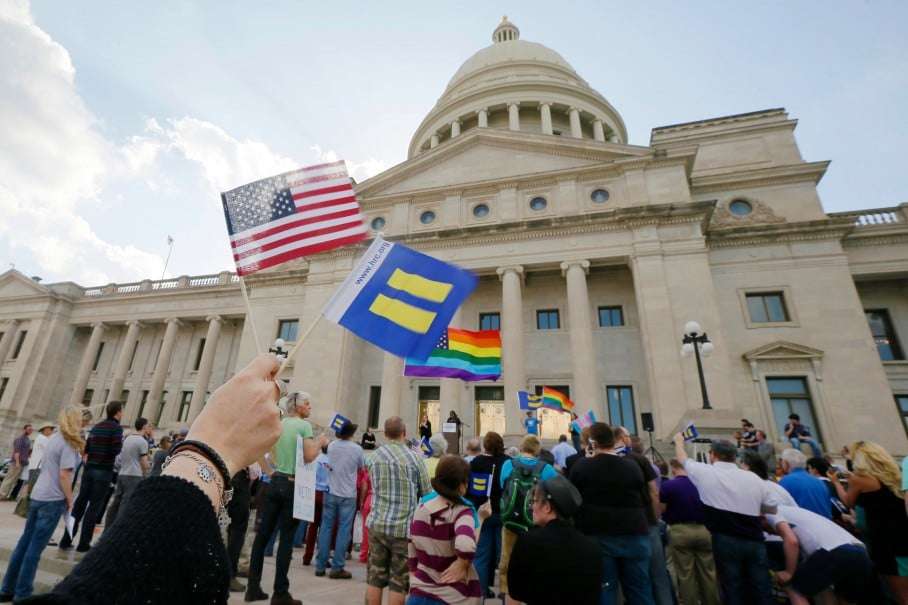The Volokh Conspiracy
Mostly law professors | Sometimes contrarian | Often libertarian | Always independent
Why aren't there more conservative threatened boycotts, demanding general religious exemption laws, or specific exemptions from involvement in same-sex weddings?

I've been hearing a lot about economic pressure from pro-gay-rights groups being used to get Indiana, for instance, to exempt anti-discrimination law from the state RFRA. I'm curious, though, why there hasn't been more counterpressure from pro-religious-exemption groups demanding RFRAs, or even specific exemptions for people who don't want to supply goods or services for same-sex weddings. (I can imagine such pressure either involving threatened long-term boycotts, threatened withdrawal of specific events, or positive offers to bring more business to states who do what the conservatives think is the right thing.)
[Wal-Mart CEO speaks out against 'religious freedom' bill in Arkansas]
Is it that the conservative opponents of same-sex marriage, and supporters of religious exemptions, think that not enough people will go along with such boycotts? Do they think such boycotts are counterproductive in general? Do they think the boycotts would be counterproductive for them but not for the pro-gay-rights forces? Do they just not feel strongly about the issue to try to launch a boycott? Or are such boycotts happening, but just not being covered as much as the pro-gay-rights boycotts?
I should say that I'm generally not a great fan of such boycotts - especially boycotts of people or companies supporting certain political positions, but also boycotts of states that enact such laws. I don't think they are necessarily wrong, but my inclination is usually against them. But I am curious why, given that they seem to be a potent political tool for one side, they don't seem to be used as much by the other.
(Of course, historically there has been lots of decentralized economic and social pressure for individual gays and lesbians to stay in the closet, and I'm sure this remains so today, especially in some places. Likewise, there is in general a good deal of economic and social pressure not to participate in political causes that are politically unpopular in a particular place or social circle, whether those causes are pro-same-sex-marriage, anti-same-sex-marriage, or anything else. But here I'm specifically discussing organized boycotts, aimed at pressuring state legislatures to do or not to certain things.)


Show Comments (0)